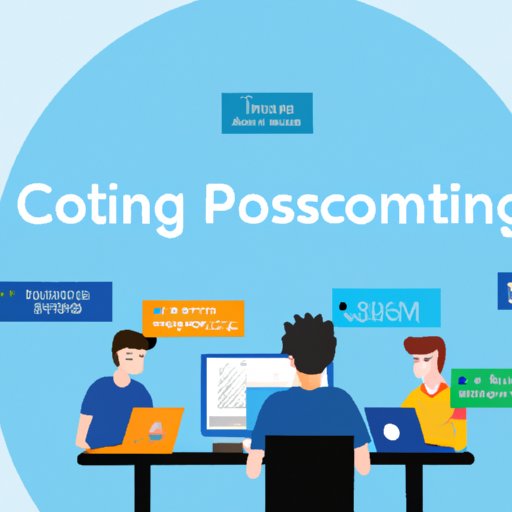Introduction
Computer programming is an increasingly popular career choice for those looking to break into the tech industry. With the rise of new technologies and the growing demand for talented software developers, more and more people are turning to programming as a way to make a living. But getting started in this field can be overwhelming, especially if you don’t have any experience or training.
This article will provide an overview of the steps you need to take to start a computer programming career. We’ll explore how to identify your goals, research the languages and platforms you want to use, build a foundation of computer science knowledge, learn by doing, network and make connections, and find local or online mentorships and communities. By the end of this article, you’ll have a better understanding of how to get started in the world of programming.
Identify Your Goals: What Do You Want to Accomplish?
The first step in starting a computer programming career is to identify your goals. What type of programming do you want to do? Are you interested in web development, mobile app development, game development, or something else entirely? Knowing what type of programming you want to focus on will help you set realistic and achievable goals.
Once you’ve identified the type of programming you want to do, it’s time to set measurable goals. This could include completing a certain number of projects within a certain time frame, learning a certain number of languages or frameworks, or obtaining specific certifications.

Research the Programming Languages and Platforms You Want to Use
Once you know the type of programming you want to do and have set measurable goals, it’s time to research the languages and platforms you want to use. Take a look at job postings to see what type of programming is in demand. This will give you an idea of which languages and platforms are the most sought after and will give you an edge when applying for jobs.
Once you’ve identified the most in-demand languages and platforms, it’s time to choose which one you want to focus on. Research the different options and evaluate which one would be the best fit for your skills and interests. Don’t be afraid to try multiple languages and platforms to see which one works best for you.

Build a Foundation of Computer Science Knowledge
Before you dive into coding, it’s important to have a strong foundation of computer science knowledge. Learn the basics of coding, such as variables, data types, loops, functions, classes, and objects. Taking courses or reading books on computer science topics can also help you gain a better understanding of the fundamentals of programming.
Learn by Doing: Get Hands-on with Projects
The best way to learn programming is by doing. Build your own projects or find open source projects to contribute to. This will give you real-world experience and help you hone your skills. You can also join coding challenges or hackathons to practice your coding skills in a competitive environment.
Network and Make Connections
Networking is an essential part of starting a computer programming career. Attend conferences and meetups to meet other programmers and make connections. Join online forums and mailing lists to stay up-to-date on the latest trends in the industry. These contacts can be invaluable resources when seeking advice or looking for job opportunities.
Find Local or Online Mentorships and Communities
Having a mentor can be extremely helpful when starting a computer programming career. Seek out someone who has more experience and can help guide you through the process. Participate in online communities to get feedback on your work and connect with other programmers. Having a supportive network of peers can make all the difference in your success.
Conclusion
Starting a career in computer programming can be daunting, but with the right resources and guidance, anyone can learn how to code and become a successful programmer. Identify your goals, research the languages and platforms you want to use, build a foundation of computer science knowledge, learn by doing, network and make connections, and find local or online mentorships and communities. With these steps, you’ll be well on your way to a successful career in programming.
(Note: Is this article not meeting your expectations? Do you have knowledge or insights to share? Unlock new opportunities and expand your reach by joining our authors team. Click Registration to join us and share your expertise with our readers.)
